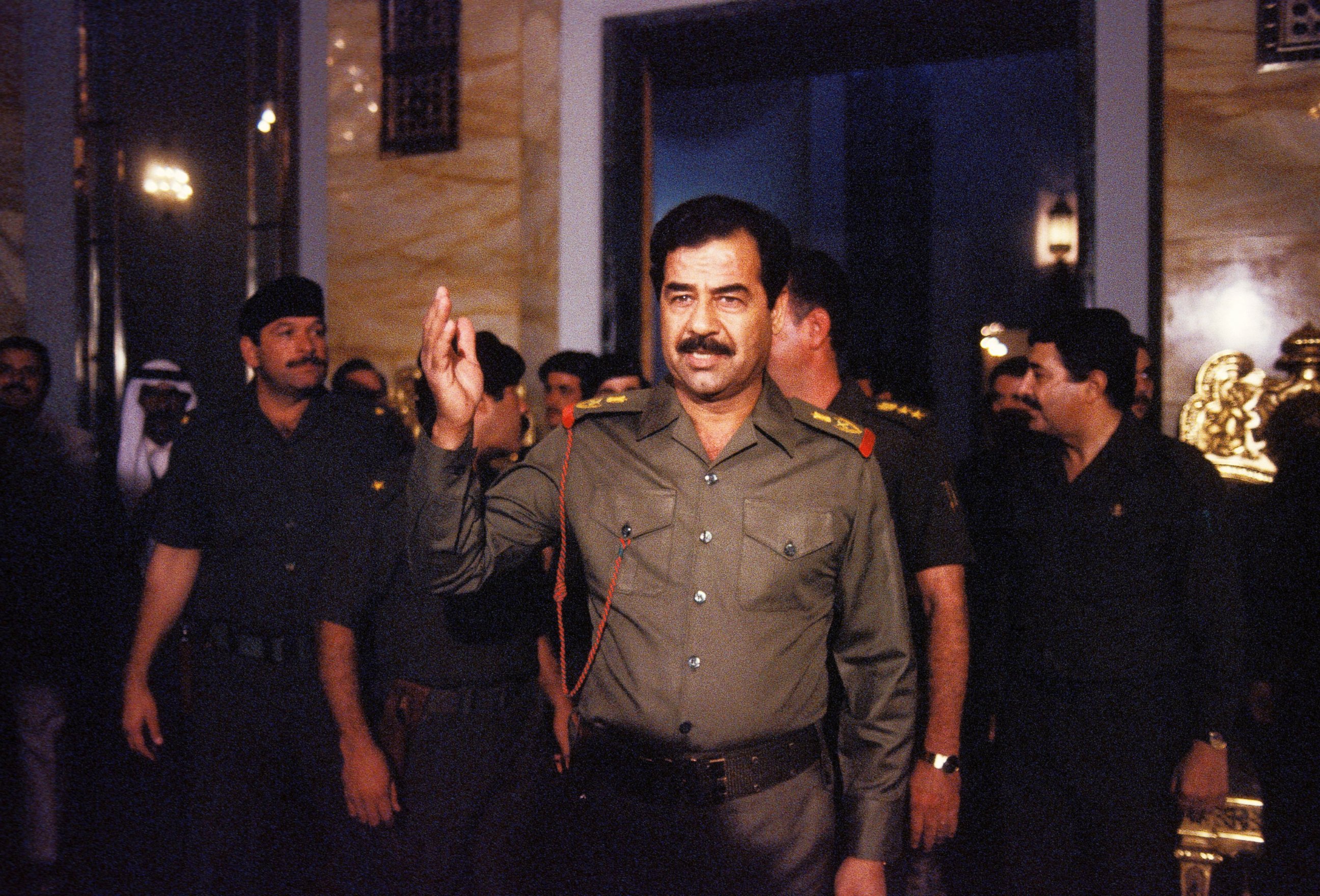Candidate Trump OK when dictator 'throws a little gas' but strikes back as president
Trump's stance on chemical weapons use appears to have shifted.
— -- President Trump's stance on chemical weapons use appears to have shifted since the 2016 presidential campaign, when he lamented that everyone went "crazy" when former Iraqi dictator Saddam Hussein threw "a little gas."
But Thursday night, acting on orders from Trump, the U.S. military struck a Syrian air base apparently linked to a deadly and illegal chemical attack on civilians with 59 tomahawk missiles.
Tuesday's chemical attack left more than 86 civilians, including women and children, dead and has been blamed by U.S. government officials on the Syrian government. Syria and Russia have denied government involvement.
Shortly after the attack, Trump explained his decision to launch a direct attack on the government of Syrian President Bashar al-Assad, saying the strike was in the "vital national security interest" of the United States.
Trump's post-strike comments were a radical departure from the isolationist views he often espoused on the campaign trail.

Making the case for a more isolationist U.S. foreign policy, Trump, during a December 2015 rally in Hilton Head, South Carolina, lamented that "Saddam Hussein throws a little gas. Everyone goes crazy."
"You had Iraq and you had Iran. And I said, they fight, they're always fighting for decades and decades, for generations. They fight, that's what they do. They fight. How we ever got involved in this mess is hard to believe," Trump said during the rally in Hilton Head.
In that appearance, Trump was likely referencing Hussein's use of chemical weapons on multiple occasions in the 1980s.
Hussein used mustard gas, a blister agent, and tabun, a nerve gas, during conflicts with Iran in 1983 and 1985, according to the BBC.
In 1988, Hussein turned his chemical weapons cache -- including mustard gas, sarin and tabun -- on his own people, when he attacked the Kurdish minority ethnic group in the northern Iraqi city of Halabja. As many as 5,000 people were believed killed in that attack.
Despite a U.N. Security Council resolution condemning Iraq's use of chemical weapons, the United States and its allies supported Hussein during the conflicts.
Hussein was later removed from power after the U.S. invasion of the country, which began in 2003. He was executed in 2006.
Throughout the election, Trump repeatedly made the case for an isolationist foreign policy and, in particular, strongly condemned liberal intervention in rogue regimes around the world.
During a July 2016 rally in Cincinnati, Trump said, "Saddam Hussein is a bad guy," but "he was damn good at killing terrorists."
Assad, too, has been praised by some -- notably the Russian government, which supports his continued reign -- for killing terrorists.
"Something should be done," Trump said while aboard Air Force One Thursday.
ABC News’ Brian Canova contributed to this report.




